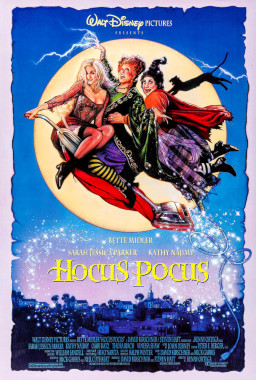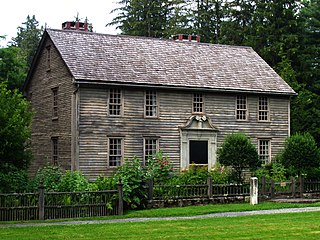
Salem is a historic coastal city in Essex County, Massachusetts, United States, located on the North Shore of Greater Boston. Continuous settlement by Europeans began in 1626 with English colonists. Salem was one of the most significant seaports trading commodities in early American history.

The Massachusetts Bay Colony (1628–1691), more formally the Colony of Massachusetts Bay, was an English settlement on the east coast of North America around the Massachusetts Bay, one of the several colonies later reorganized as the Province of Massachusetts Bay. The lands of the settlement were in southern New England, with initial settlements on two natural harbors and surrounding land about 15.4 miles (24.8 km) apart—the areas around Salem and Boston, north of the previously established Plymouth Colony. The territory nominally administered by the Massachusetts Bay Colony covered much of central New England, including portions of Massachusetts, Maine, New Hampshire, and Connecticut.

Winthrop is a town in Suffolk County, Massachusetts, United States. The population was 19,316 at the 2020 census. Winthrop is an ocean-side suburban community in Greater Boston situated at the north entrance to Boston Harbor, close to Logan International Airport. It is located on a peninsula, 1.6 square miles (4.2 km2) in area, connected to Revere by a narrow isthmus and to multiple portions of Boston by a bridge over the harbor inlet to the Belle Isle Marsh Reservation in the Neighborhood of East Boston, a shared border at the Boston Logan International Airport, and at Deer Island.

Ipswich is a coastal town in Essex County, Massachusetts, United States. The population was 13,785 at the 2020 census. Home to Willowdale State Forest and Sandy Point State Reservation, Ipswich includes the southern part of Plum Island. A residential community with a vibrant tourism industry, the town is famous for its clams, celebrated annually at the Ipswich Chowderfest, and for Crane Beach, a barrier beach near the Crane estate. Ipswich was incorporated as a town in 1634.

The Winthrop Fleet was a group of 11 ships led by John Winthrop out of a total of 16 funded by the Massachusetts Bay Company which together carried between 700 and 1,000 Puritans plus livestock and provisions from England to New England over the summer of 1630, during the first period of the Great Migration.

Thomas Dudley was a New England colonial magistrate who served several terms as governor of the Massachusetts Bay Colony. Dudley was the chief founder of Newtowne, later Cambridge, Massachusetts, and built the town's first home. He provided land and funds to establish the Roxbury Latin School and signed Harvard College's new charter during his 1650 term as governor. Dudley was a devout Puritan who opposed religious views not conforming with his. In this, he was more rigid than other early Massachusetts leaders like John Winthrop, but less confrontational than John Endecott.

Hocus Pocus is a 1993 American halloween comedy film directed by Kenny Ortega from a screenplay by Mick Garris and Neil Cuthbert, and a story by David Kirschner and Garris. It follows a villainous comedic trio of witches who are inadvertently resurrected by a teenage boy in Salem, Massachusetts, on Halloween night.

The Trustees of Reservations is a non-profit land conservation and historic preservation organization dedicated to preserving natural and historical places in the Commonwealth of Massachusetts. It is the oldest land conservation nonprofit organization of its kind in the world and has 100,000 member households as of 2021. In addition to land stewardship, the organization is also active in conservation partnerships, community supported agriculture (CSA), environmental and conservation education, community preservation and development, and green building. The Trustees owns title to 120 properties on 27,000 acres (11,000 ha) in Massachusetts, all of which are open to the public. In addition, it holds 393 conservation restrictions to protect an additional 20,000 acres (8,100 ha). Properties include historic mansions, estates, and gardens; woodland preserves; waterfalls; mountain peaks; wetlands and riverways; coastal bluffs, beaches, and barrier islands; farmland and CSA projects; and archaeological sites.

Naumkeag is the former country estate of noted New York City lawyer Joseph Hodges Choate and Caroline Dutcher Sterling Choate, located at 5 Prospect Hill Road, Stockbridge, Massachusetts. The estate's centerpiece is a 44-room, Shingle Style country house designed principally by Stanford White of McKim, Mead & White, and constructed in 1885 and 1886.

Arbella or Arabella was the flagship of the Winthrop Fleet on which Governor John Winthrop, other members of the Company, and Puritan emigrants transported themselves and the Charter of the Massachusetts Bay Company from England to Salem between April 8 and June 12, 1630, thereby giving legal birth to the Commonwealth of Massachusetts. John Winthrop is reputed to have given the famous "A Model of Christian Charity" sermon aboard the ship. Also on board was Anne Bradstreet, the first European female poet to be published from the New World, and her family.

The Mission House is an historic house located at 19 Main Street, Stockbridge, Massachusetts. It was built between 1741 and 1742 by a Christian missionary to the local Mahicans. It is a National Historic Landmark, designated in 1968 as a rare surviving example of a colonial mission house. It is now owned and operated as a nonprofit museum by the Trustees of Reservations.

George Francis Dow was an American antiquarian for the Society for the Preservation of New England Antiquities, active in Massachusetts.

First Parish Dorchester is a Unitarian Universalist church in Dorchester, Massachusetts. The congregation was founded by English Puritans who initially saw themselves as reformers rather than separatists, but increasingly intolerable conditions in England and at the urging of Reverend John White of Dorchester, Dorset, they emigrated to New England. On March 20, 1630 as they set sail from Plymouth, England on the Mary and John, the congregation wrote its founding church covenant. Nearly all of the 140 ship passengers originated in the West Country counties of Somerset, Dorset and Devon. In late May, the ship landed first at what became called Hull, Massachusetts, and then in June at a place called "Mattapan" by the indigenous people including the Massachusett and Wampanoag. The Puritans named their new home "Dorchester Plantation."
William Aspinwall was an Englishman who emigrated to Boston with the Winthrop Fleet in 1630. He played an integral part in the early religious controversies of the Massachusetts Bay Colony.

Naumkeag is a historical tribe of Eastern Algonquian-speaking Native American people who lived in northeastern Massachusetts. They controlled territory from the Charles River to the Merrimack River at the time of the Puritan migration to New England (1620–1640).
The Old Planters of Massachusetts were settlers of lands on Massachusetts Bay that were not part of the two major settlements in the area, the Plymouth Colony (1620), and the Massachusetts Bay Colony.
Great House in Cape Ann was a seventeenth century structure built by colonists in present-day Gloucester, Massachusetts. It was later disassembled and moved to Salem, Massachusetts, to be the Governor's house.

Joseph Everett Chandler was an American architect. He is considered a major proponent of the Colonial Revival architecture.
George Phillips was an English-born Puritan minister who led, along with Richard Saltonstall, a group of English settlers up the Charles River to settle in what is now Watertown, Massachusetts, in 1630.

Hocus Pocus 2 is a 2022 American Halloween comedy film directed by Anne Fletcher, written by Jen D'Angelo and produced by Walt Disney Pictures. A sequel to the 1993 film Hocus Pocus, it stars Bette Midler, Sarah Jessica Parker, Kathy Najimy, and Doug Jones reprising their roles, with Sam Richardson, Whitney Peak, Belissa Escobedo, Tony Hale, and Hannah Waddingham joining the cast in new roles.
















